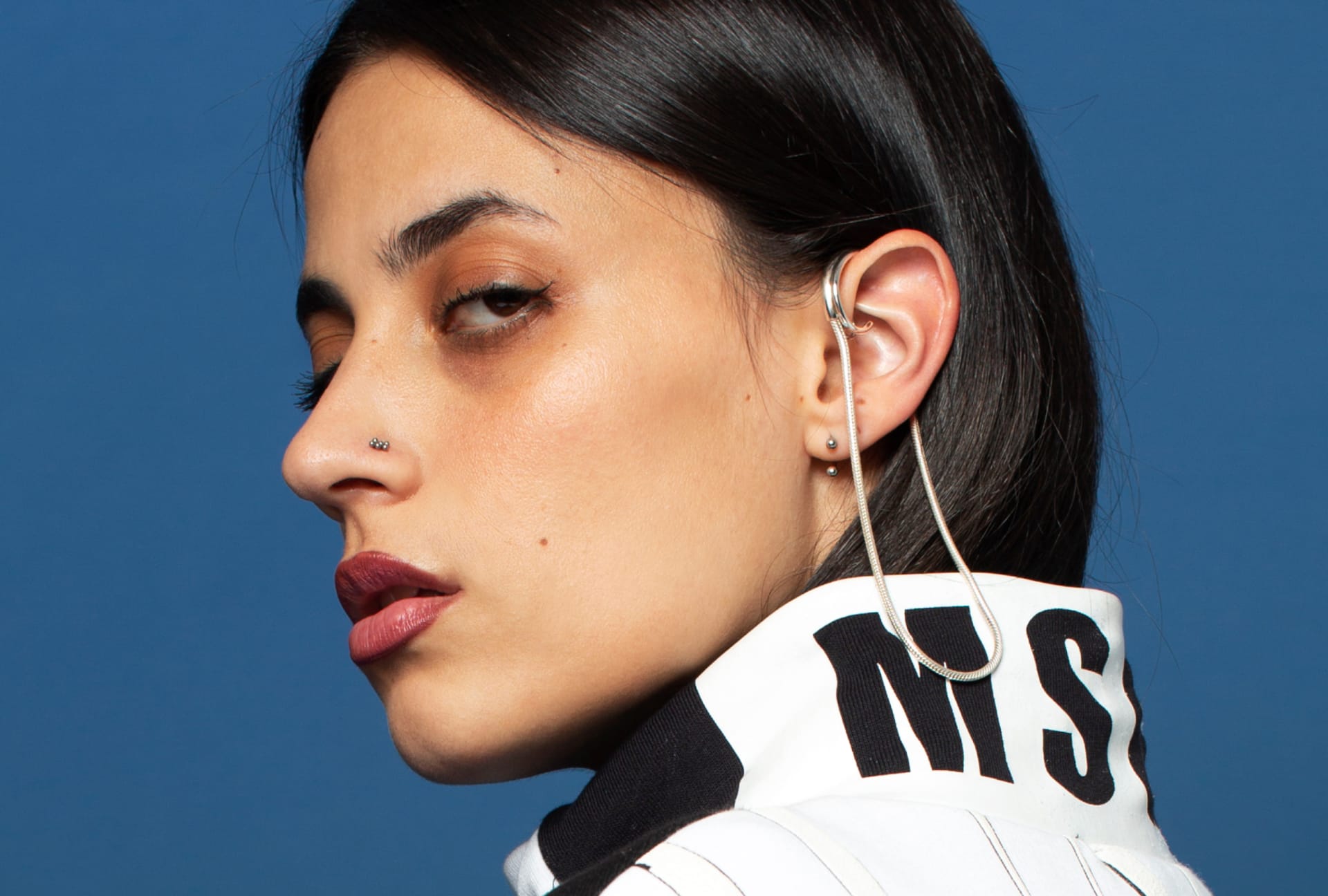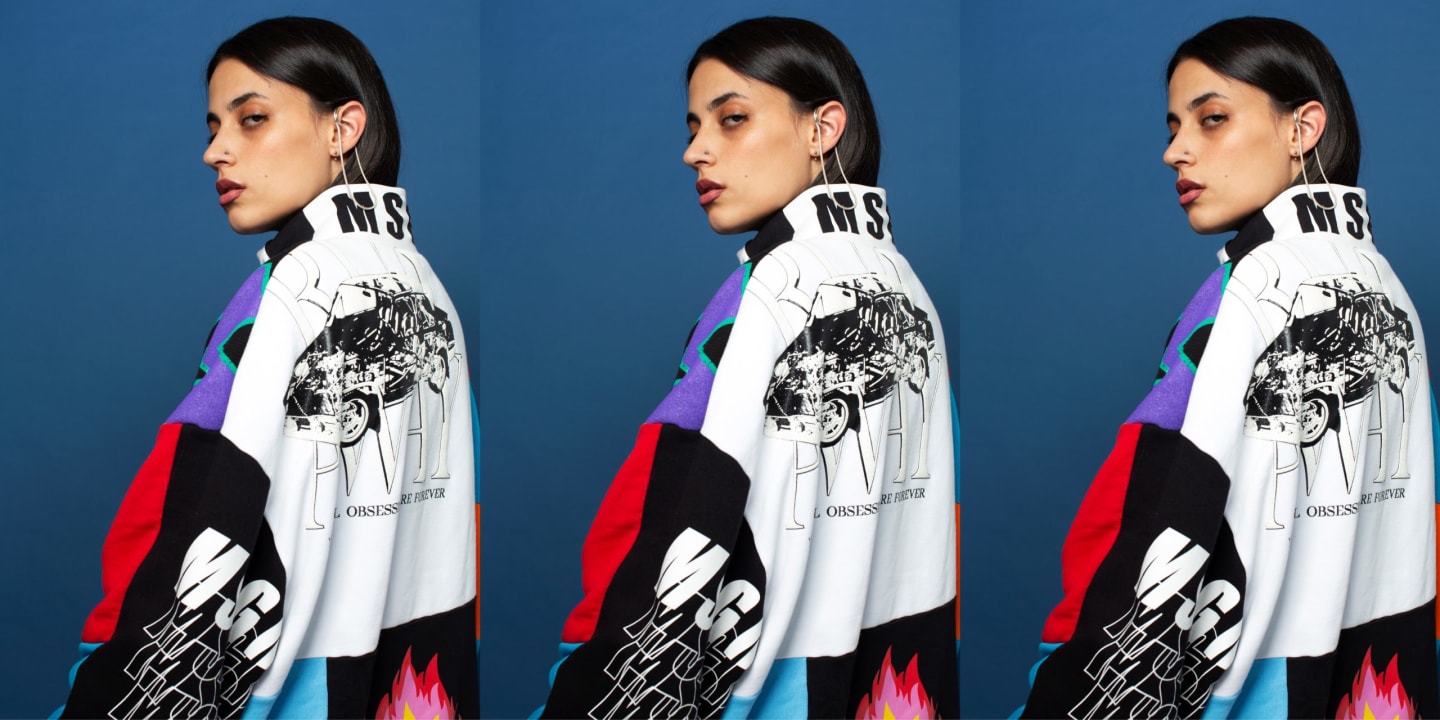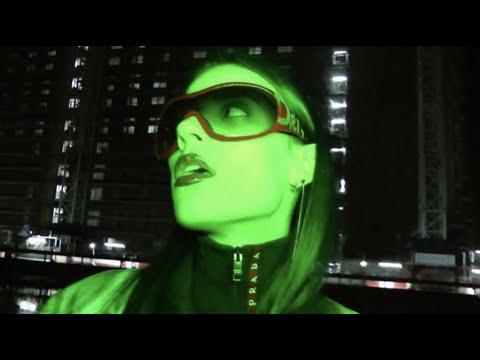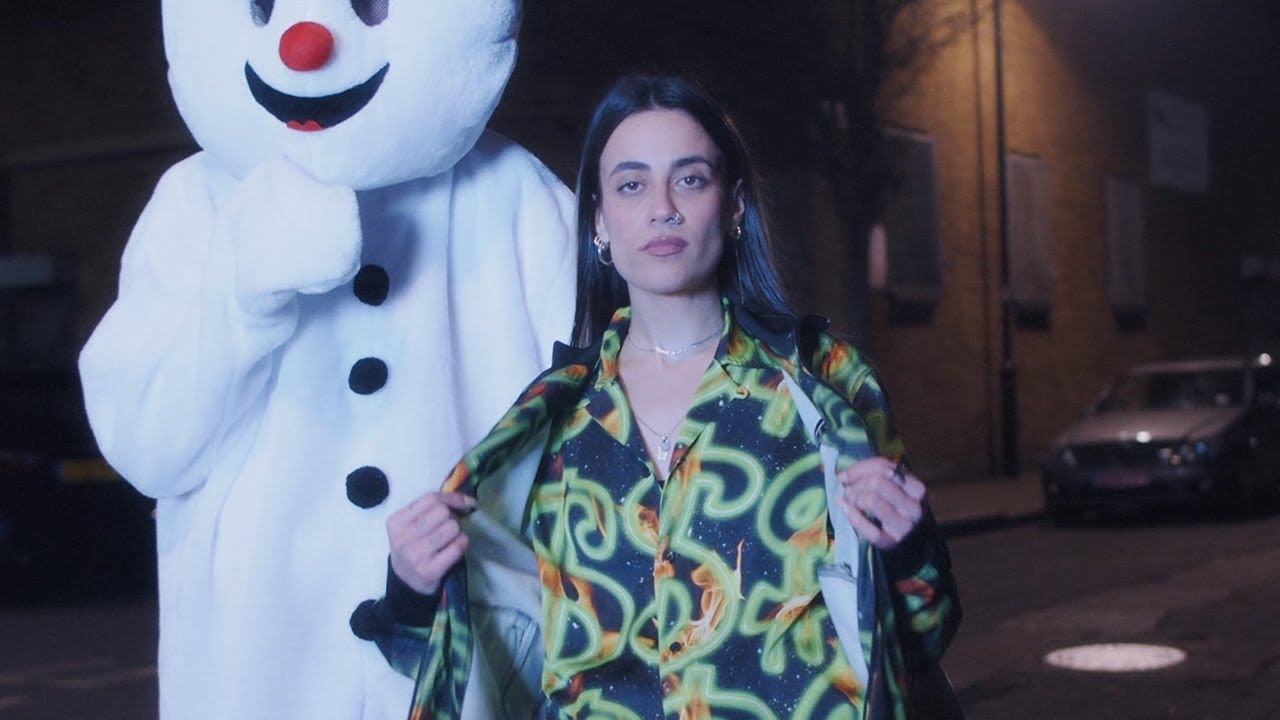
COUCOU CHLOE’s Club Music Swerves Into the Bizarre Unknown
The inimitable artist on singing with dogs, "DROP TEN," and trusting your creative impulses.
“I’m basically only listening to Daniel Johnston and Chopin,” a refreshed COUCOU CHLOE admits with a smirk over FaceTime. It’s a strange statement for an artist so closely associated with the “experimental club” label, who you’d expect to be fully engrossed in the bleeding-edge releases of a host of underground imprints or the latest mutations of hybrid electronic styles. But Chloe’s work has always existed in a peculiar liminal space, nodding to pop, rap, and club music while dodging concrete associations with any of their respective scenes. Its deep, textured beats and trademark twisted-beyond-any-possible-comprehension vocals have always exuded an alien un-placeability that make it hard to relate too directly to anything else. It makes sense that she might not be looking for too much outside influence.
Whether her listeners felt it or not, the release of “NOBODY” and “DROP TEN” signified a significant artistic departure for Chloe. While her last EP, Naughty Dog, was released just barely over a year ago, she’s since distanced herself from the project, claiming it (and the mental space it came from) difficult to relate to at this point in her life. She’s happy with that fact, however, stating, “For me, music is like checkpoints. It’s like getting tattoos. You’re like, ‘Oh, shit, I was like that at one point?’ Or, “I was feeling that? Okay.” Where Naughty Dog was the result of a period where she admits she felt “not able to make music” at all, her newest track, “DROP TEN,” pairs her older work’s blunted, angular trap beats and hallucinogenic vocals with chippy video game synths, uncanny animal samples, and a newfound sense of confidence and playfulness.
The period since Naughty Dog’s release, and especially the last few months of quarantine, have been transformative for Chloe. She says, “I felt like I reconnected with some really deep and dark emotions that I haven’t felt in a really long time…but it helped me get into where I wanted to be, mentally.” It seems that quarantine’s forced self-reflection allowed her to get to a point in her work where she has more faith in her creative intuition, no matter which direction it takes her in. It’s also made her much more prolific. And while she’s keen on keeping most of the details under wraps, she divulges that it’s led to her writing her debut album, which should be out early next year.
“It’s a lot of different music,” she says, continuing, “There are more club tracks—like, some shots are to be done—and then, eventually, we’re crying on the floor. Sometimes I felt churned up, sometimes I felt dumb, and sometimes I felt so fucking shit and…I expressed all of it.” As she talks about the blind faith she has in her intuition and the respect she has for any emotion she may be feeling in the moment, I hear Allen Ginsberg’s motto “first thought, best thought” and the loose concepts of mindfulness echoing in my head. “I was feeling pathetic one day, and I was like, ‘You piece of shit,’ and I made this track where I make fun of myself. It sounds like a circus,” she says. This permissive mentality also led her to re-embrace singing, something she’s shied away from since the one-off track “tears for fears,” which was released over four years ago. “There was a period where singing and soft emotions weren’t things I felt comfortable in expressing, she says, “Now, I made a track where I sing until I lose my breath.”


Chloe’s work is characterized in a lot of ways by her commitment to non-judgemental creative fluidity—following impulses, recontextualizing aesthetic tropes, and mixing cultural references. It’s baked into the formula, and it’s what gives her output an off-the-cuff sense of urgency. She’s decidedly opposed to talking about the conceptual side of her music, hoping that it communicates something viscerally without the need for explanation. “I don’t always know what I want to express. It’s usually more subconscious,” she says, continuing, “People don’t understand what I’m saying in my lyrics anyway.”
Her vocal style, where she twists and mangles both rapped and sung lyrics through a dense chain of effects, makes the music’s underlying themes intentionally hard to pin down, but as she explains, it’s often the elements beyond the written lyrics that communicate the song’s meaning: “I’m French, but I grew up listening to a lot of American hip hop and R&B. I was singing along as well, but I couldn’t understand what was being said. But it was fine; I still felt everything,” she says. “Now people who listen to my music are hearing it the same way I did when I was a child.”

Being naive to any concrete messaging amplifies her tracks’ stream-of-consciousness sonic qualities and makes the moment when a stock sample of a record scratch or a cartoonish reference flies in out of left field that much more jarring. “Like, for example, the ice cream truck song makes me crazy,” she says, “I fucking love it. So now I want to make an ice cream song, like a summer anthem.” It sounds ridiculous, but she is wholeheartedly committed to chasing and bringing the ideas that pop into her head to fruition, no matter how silly or outlandish. “In a new track, I sing with dogs,” she says, “You can do everything with a laptop, so why not sample a dog and make it sing with you?” I was skeptical. But, lo and behold, when “DROP TEN” was finally released earlier this month, I heard it, right there in the middle of the track: a reinterpretation of the beat’s main riff sung through dog barks. “If you’re talking about something serious or dark, writing a few jokes into it can give it a different dimension,” she says.
The longer we talk, the more we veer away from music—dipping into, among other things, her takes on fashion, online branding, and protein shakes—and it becomes clear how much all of her music-adjacent interests feed into her work as an artist. The way she blurs the lines between the separate sides of her creative world is most immediately noticeable in her approach to style, where she uses dramatic outfits to play out the different characters in her music and videos—donning room-filling puffer jackets and bejeweled teeth in “GECKO” or looking nearly post-human with floor-length hair extensions and piercing white contacts in “FLIP U.” Across the myriad costume changes of her visual output, however, a few noticeable motifs stand out: drastically oversized garments, suiting and (traditionally) men’s clothing. “It’s comfort first…I want to feel like I’m in my bed everywhere,” she says. To her, it seems like constrictive, form-fitting or gender-conforming outfits literally represent the restrictions that hinder her sense of personal exploration. “Fashion is a process of just discovering what, for me, it means to be feminine—and how it doesn’t really make sense,” she says, lamenting the boxes that even her clothing choices can place her in.



In the video for “NOBODY,” Chloe reclines at a poker table, drinking whiskey and smoking in a full-body lizard-print suit. Instead of allowing her the chance to play with the overtly masculine tropes of gambling and riding motorcycles, she’s received reactions that question her intentions and have even led to her being misgendered: “Sometimes people refer to me, saying ‘they’ or something. Just because I wear a suit doesn’t mean that I want to be called ‘they,’ you know? For me it’s feminine. I’m feminine, just differently.”
As she continues to pull back the curtain, chasing the different threads of what the COUCOU CHLOE project is, Chloe offers a piece of advice that won’t be lost on any producer or aspiring artist who’s been through a period of intense self-doubt: “Sometimes it’s better to accept that the track is finished. Some people are going to like it, and some are going to hate it. Some are never going to talk about it. You can’t know what people feel, and….Is it going to change what’s being made and what I’m going to do? No.”
Zach Tippitt is an editor for Electronic Beats. Follow him on Instagram.
Photos by Samuel Ibram
Styling by Lee Trigg
Published August 26, 2020. Words by Zach Tippitt, photos by Samuel Ibram.


